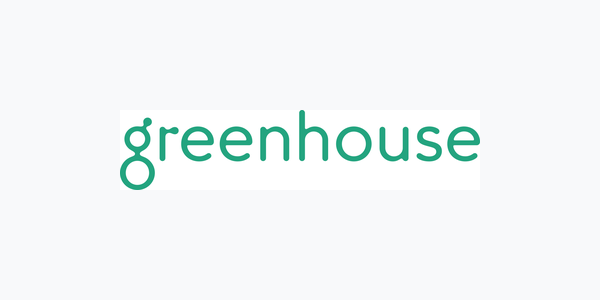How Greenhouse Compares
| Feature |
 Greenhouse
CURRENT
Greenhouse
CURRENT
|
 Lever
Lever
|
 Ashby
Ashby
|
 Jobvite
Jobvite
|
 iCIMS
iCIMS
|
|---|---|---|---|---|---|
| Best For | Growing Companies | Talent Relationship | Engineering Teams | Social Recruiting | Enterprise Scale |
| Pricing | $$$ | $$$ | $$$ | $$$ | $$$$ |
| Ease of Use | ⭐⭐⭐⭐ | ⭐⭐⭐⭐ | ⭐⭐⭐⭐ | ⭐⭐⭐⭐ | ⭐⭐⭐ |
| Features | ⭐⭐⭐⭐⭐ | ⭐⭐⭐⭐ | ⭐⭐⭐⭐ | ⭐⭐⭐⭐ | ⭐⭐⭐⭐⭐ |
| Support | Excellent | Good | Good | Good | Enterprise |
| Integrations | 450+ | Good | Good | Many (75+) | 300+ |
| Mobile App | ✓ | ✓ | ✓ | ✓ | ✓ |
| AI Features | ✓ | ✗ | ✓ | ✓ | ✓ |
| Free Trial | ✓ | ✓ | ✓ | ✓ | ✗ |
💡 Pro Tip: Click on any platform name to read our full in-depth review and see detailed pricing, implementation requirements, and customer feedback.
What's New in 2025
- → Dream Job Feature: Candidates can mark one application per month as their top choice, helping identify high-intent applicants
- → AI-Powered Summaries: Instant candidate summaries and AI-generated interview questions streamline evaluation
- → Self-Service Scheduling: Native interview scheduling eliminates need for third-party tools like Calendly
- → Enhanced Filtering: New filtering options for interviews by timeframe, candidate name, and job title
- → G2 #1 Ranking: Maintains top position across Enterprise and Mid-Market ATS categories with 98% user satisfaction
Note: Updates based on vendor announcements and platform changes through 2025.
Executive Summary
Greenhouse has established itself as the leading applicant tracking system for companies prioritizing structured hiring and data-driven recruitment decisions. With over 7,000 customers and a valuation exceeding $4 billion, Greenhouse delivers sophisticated interview management, customizable workflows, and powerful analytics that help organizations build more effective hiring processes. The platform excels in environments where hiring quality and process consistency matter more than pure speed.
The Science of Better Hiring
Greenhouse pioneered structured hiring, and they continue to lead. Their interview kits ensure every candidate gets fairly evaluated. Scorecard analytics reveal which interview questions predict success. One tech company discovered their technical assessments had zero correlation with job performance, while behavioral questions showed 0.7 correlation. They redesigned their process using Greenhouse insights and improved quality of hire by 40% within one year.
Key Features
Greenhouse offers comprehensive interview scheduling with automated coordination across multiple time zones, structured interview templates that ensure consistent candidate evaluation, and robust scorecard systems like Lever's approach other platforms like Teamtailor's approach uropean ATS with Global Ambitions ker RMS: End-to-End Agency Workflows tform That Does Everything tion Platform. The platform includes advanced reporting dashboards, seamless integration with over 450 third-party tools, and customizable approval workflows that adapt to complex organizational structures. Mobile-optimized candidate experiences and white-label career pages enhance employer branding throughout the recruitment process.
Platform Strengths
The platform's greatest strength lies in its ability to structure and optimize the entire hiring process through data-driven insights. Greenhouse provides exceptional interview coordination capabilities, reducing scheduling conflicts by up to 80% through intelligent automation. The system's analytics engine delivers actionable recruitment metrics that help identify bottlenecks and improve time-to-hire. Advanced permission controls and approval workflows ensure process compliance while maintaining hiring manager autonomy.
Ideal Use Cases
Greenhouse works best for growing companies with 100-5,000 employees who prioritize hiring quality over speed. Technology companies, consulting firms, and organizations with complex approval processes benefit most from its structured approach. The platform is particularly valuable for teams conducting high-volume technical hiring, companies expanding internationally, and organizations seeking to eliminate hiring bias through standardized evaluation processes.
Pricing and ROI
Greenhouse pricing starts at approximately $6,000 annually for small teams, scaling to $25,000+ for enterprise features. While positioned as a premium solution, customers typically see ROI within 6-12 months through improved hiring quality and reduced time-to-fill. The platform's ability to standardize processes often results in 25-40% reduction in bad hires, making the investment cost-effective for quality-focused organizations. For comparison, see Lever offers a different approach.
Implementation
Implementation typically requires 4-8 weeks with dedicated customer success support throughout the process. Greenhouse provides comprehensive training materials, migration assistance, and ongoing optimization consulting. The platform integrates smoothly with existing HRIS systems like Lever's approach, and most customers report full team adoption within 30 days of launch. Regular training sessions ensure teams maximize platform capabilities as they scale.
Bottom Line
Greenhouse represents the gold standard for structured hiring platforms, offering unmatched interview management and analytics capabilities. While the premium pricing may challenge smaller budgets, the platform delivers exceptional value for organizations committed to building systematic, data-driven recruitment processes. Companies serious about hiring quality and process optimization will find Greenhouse worth the investment. For comparison, see Lever offers a different approach.
Strengths
- Superior user experience and interface design
- Structured hiring methodology improves quality
- Fast implementation (6-8 weeks vs 4-8 months)
- Strong candidate experience and mobile optimization
- Transparent pricing model
- Comprehensive integration marketplace (450+ partners)
- Excellent customer support and training resources
- Advanced analytics and bias detection capabilities
Limitations
- − Per-user pricing becomes expensive at scale
- − Limited workflow customization options
- − Integration dependencies for advanced features
- − Process standardization requirements may create resistance
- − Premium pricing compared to basic ATS alternatives
- − Less suitable for highly regulated industries
- − Fewer enterprise-grade compliance features than legacy platforms




